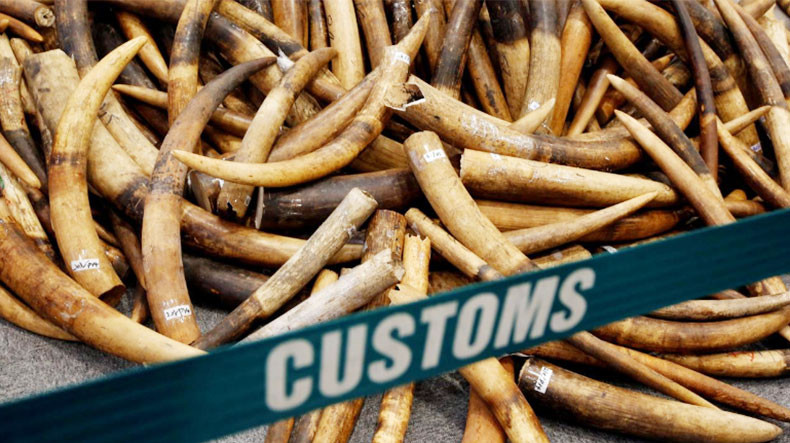
China ban on ivory sales begins Sunday, aims to curb elephant poaching
A ban on ivory sales in China, the world’s largest importer and end user of elephant tusks, takes effect on Sunday with wildlife activists calling it a vital step to reducing the slaughter of the endangered animals, Reuters reported.
China has made a big push to eradicate ivory sales and demand has fallen since early 2014 because of a crackdown on corruption and slower economic growth.
Public awareness campaigns featuring celebrities have helped boost awareness of the bloody cost of ivory. Wildlife groups estimate 30,000 elephants are killed by poachers in Africa every year.
China has allowed the sale of pre-convention ivory, which refers to products such as carvings and crafts acquired before the 1975 Convention on International Trade in Endangered Species of Wild Fauna and Flora (CITES), as long as it is accompanied by certificates.
The trade in pre-convention ivory has been legally thriving in China and Hong Kong since 1975, and environmental activists have long asserted that it has spurred demand for all ivory.
The ban on all ivory sales has already led to an 80 percent decline in seizures of illegal ivory entering China as well as a 65 percent decline in raw ivory prices, said conservation group WildAid.
Under the ban, China’s 172 ivory-carving factories and retail outlets will also close. Some factories and shops started closing in March.
Illegal ivory supplies have also been rife in unlicensed shops and online across China.
The Chinese ban has been hailed by activists but they warn that Hong Kong, a special administrative region of China, remains a big obstacle to the eradication of elephant poaching.
China’s ban on sales does not apply in the former British colony, which has the largest retail market for ivory and has traded it for more than 150 years.
Hong Kong is a prime transit and consumption hub for ivory with more than 90 percent of consumers from mainland China.
Since 2003, Hong Kong has intercepted about 40 tonnes of illegal ivory, only about 10 percent of what is believed to have been smuggled in, WildAid said in a paper to the city’s legislature in May.
Hong Kong set a timetable for a ban on ivory trading last year, with a phase-out time of five years. A final vote on the ban is expected in the city’s legislature in early 2018.
Newsfeed
Videos






























